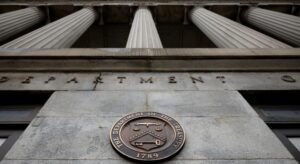
Telegram, known for its role in anti-government protests and as a hub for criminal activity, is facing a critical juncture. The app’s CEO and co-founder, Pavel Durov, has been charged in France for allegedly allowing illegal content on the platform. The decisions Durov makes now could either compromise the company’s core values or severely damage its reputation.
The charges in France are serious, involving accusations that Telegram was complicit in hosting and distributing child sexual abuse material (CSAM), as well as facilitating drug trafficking, organized fraud, and other illegal activities.
“Telegram as a company is in a dilemma,” said Yevgeniy Golovchenko, assistant professor at the University of Copenhagen’s department of political science, in an interview with Euronews Next. “On one hand, they likely want to avoid escalating tensions and might be inclined to comply with French laws. But on the other hand, doing so would signal that they are willing to increase moderation, which goes against the core of their product.”
The Anti-Government Brand
Telegram has built its reputation as a platform that resists government oversight and refrains from heavy moderation. While the app offers end-to-end encryption, it is not enabled by default, meaning many users may not realize their data is vulnerable unless they manually select encryption for each message.
Read Related News >>
Launched in 2013 by Durov and his brother Nikolai, Telegram was designed as a fast, secure messaging app that could operate without government interference. The inspiration for Telegram came after Durov’s previous social media platform, VKontakte (VK), faced pressure from Russian authorities to hand over user data to the FSB, Russia’s security service. This included a demand to block the account of the late Russian opposition leader Alexei Navalny.
After leaving Russia and selling VK, Durov launched Telegram, which has since grown to over 950 million monthly active users as of July 2024. “Telegram’s reputation is built on resisting cooperation with the state,” Golovchenko noted, adding that Durov’s personal history of defying government pressure has bolstered this image. If Durov refuses to tighten content moderation in response to the French charges, it could “strengthen this [anti-government] brand for users,” he added.
Ignoring Regulation
However, Telegram’s reputation has always been controversial. While it has been a vital tool for organizing protests in countries like Iran and Belarus and a means of communication during the Ukraine war, it has also been exploited by Russia’s military, propaganda groups, and global extremist and criminal organizations.
“The charges in France have already impacted Telegram’s reputation,” said William Echikson of the Center for European Policy Analysis (CEPA) in an interview with Euronews Next. “To me, Telegram was never innocent. I’ve never known a company that so brazenly ignored regulators, and it doesn’t surprise me that they ignored the law.”
Despite Russia’s attempts to ban Telegram in 2018, there are now public officials in the country advocating for support of Durov, which Golovchenko suggests could “bolster the Russian propaganda narrative that the West is authoritarian and lacks freedom.”
As Telegram has been used by both sides in the Ukraine conflict, the platform’s approach to content moderation could further polarize opinions. How Durov navigates this dilemma could either lead to increased criticism in Ukraine and praise in Russia or vice versa, depending on which side his decisions favor.







